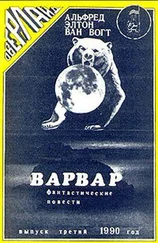Even one of the greatest saints, and one of the most moving in the world, Milarepa, began with black magic; at eleven years of age, in a spirit of revenge, he destroyed crops by making hailstones fall on them, and threw toads and monstrous beasts around, destroying a house and those who lived in it.
He began that way; that is the rule. Then he expiated himself, and the tale of his expiation is beautiful indeed. The Hindu has psychic power and he makes use of it. But kindness with him is rarer than elsewhere. To do harm by psychic means is his first temptation. To do good is an exception.

An aquarium is usually composed in Europe of a very large quantity of receptacles, of pools and of glass cages where you find what you have seen everywhere and even on your plate. In fact, they are labeled ‘trout,’ ‘perch,’ ‘pike,’ ‘plaice,’ ‘carp’ three months old, carp one year old, carp two years old, etc., sometimes a catfish and when they want to make a splurge, a king-crab, an octopus and two or three sea-horses.
Now the aquarium of Madras is quite small . It has only twenty-five compartments. But perhaps two of them, at most, are insignificant. And nearly all of it is stupendous.
What fish can compete in strangeness with the Autennarius hipsidus? A big good-natured head, a gigantic philosopher’s head, but where as much learning can be seen in its chin as in its forehead, an enormous wooden shoe of a chin, not very prominent but very long. Two fins, just like forepaws, on which it squats, and plays the toad or the wild boar. If it moves them from right to left or against the glass, its paws become real hands with forearms, weary hands, that can do no more.
It has a comb on its nose, it is the size of a frog, yellow like a flannel vest and of the same texture, with even little stitches to be seen; one wonders how it happens that this plucked chicken is not eaten up immediately by its neighbors.
It remains squatting for hours without moving; it has a stunned look that betrays it.
For if a prey does not pass in front of its mouth, it will not bestir itself. But if it passes just in front, then, yes, the jaws open, snap up, close again and go ‘clack.’
When the female lays eggs, four meters of gelatin and of eggs come out of her body.
Most of the Tetrodon species have difficulty getting people to believe at first sight that they are not artificial and entirely made up of either morocco, or of pajama material, or, the finest ones, of tiger-cat’s fur or of a cheetah’s skin. They have such a stuffed, swollen, shapeless look, like goatskins. But these goatskins are dreadful (Tetrodon oblongus , Karam pilachai); as soon as one among them shows signs of either slight fatigue or illness, they surround it, catch hold of it, some by the tail, others by the front fins, hold it firmly while the rest tear pieces of flesh from its belly as hard as they can. It is their great sport.
You will never see one among them with a whole tail. There is always some famished sadist waiting to take a bite out of it before the other can turn around.
The Mindakankakasi has an oblong spot in its eye.
First it has a very beautiful black pupil, then on top of that a spot, a very large stripe of dark blue, a somber canal that goes all the way to the top of the head.
And when it is sick, it cannot keep itself in a horizontal position. It advances head downward, the tail just touching the water.
The scorpion-fish is a fish as far as ten little parasols joined to a little body can make a fish; also it is infinitely more cumbersome than any Chinese fish.
Then there were two extraordinary fishes whose names I could never discover. One with eye-sockets that are developed like Neanderthal Man’s, another slightly less, with an extraordinarily human look, of the Caucasian type (the fish, on account of the absence of eye-sockets, are usually more similar to the Mongolian races). And a well-cut mouth, fine and almost spiritual, and it shows its teeth, or rather a horny little tonguelet that gives it a kind of pout. The fin along its back, when at rest, is folded four or five times. And there are twenty others that seem quite new and to have sprung from the unknown.

Certain people are surprised that, having lived in a European country more than thirty years, I never happened to speak of it. I arrive in India, I open my eyes, and I write a book.
Those who are surprised surprise me.
How could one not write about a country that has met you with an abundance of new things and in the joy of living afresh?
And how could one write about a country where one has lived, bound down by boredom, by contradiction, by petty cares, by defeats, by the daily humdrum, and about which one has ceased to know anything.
But have I been accurate in my descriptions?
Let me suggest a comparison.
When a horse sees a monkey for the first time, it observes it. It sees that the monkey tears flowers off bushes, tears them deliberately (not abruptly); it sees this. Also that it often shows its teeth to its companions, that it snatches their bananas, though possessing as good ones itself, and lets them fall, and it sees that the monkey bites the weaker ones. It sees it caper and play. So the horse forms an idea of the monkey. It forms a circumstantial idea of it and sees that itself, the horse, is quite another creature.
The monkey still more quickly notices all the characteristics of the horse, which not only make it incapable of hanging from the branches of trees, of holding a banana in its paws, in short, of accomplishing a single one of the acts that the monkeys consider so attractive and in which they excel.
This is the first stage in knowledge.
But in time they begin to rather enjoy meeting each other.
In India, in the stables, there is almost always a monkey. It renders no service, apparently, to the horse, nor the horse to the monkey. Nevertheless, the horses who have a companion of this kind work harder, are more willing than the others. Presumably, with its grimaces, its capers, its different rhythm, the monkey is restful for the horse. As for the monkey, it would be glad to spend a quiet night. (A monkey who sleeps among its own kind is always on the qui vive.)
Thus, one monkey is more enlivening for the horse than ten or so horses.
If one only knew what the horse thinks of the monkey at this moment, quite probably it would say: ‘Ah… dear me, I’m not so sure.’
Knowledge does not progress with time. Differences are overlooked. You compromise. You come to an understanding. And you cease to come to conclusions. This fatal law acts in such a way that the permanent residents of Asia and the persons who are most thrown together with the Asiatics are not at the exact point where a focused vision can be retained, whereas a passerby, with his innocent eye, is able sometimes to lay his finger on the center.

If you read Hind Swaraj , by Gandhi, and after that any political writing by any other man in the world, you will find a fundamental difference between them. In Hind Swaraj there is holiness, there are undeniable traces of it there. Gandhi when young was fussy and argumentative and vindictive and carnal, more concerned with what was upright than in being really upright. He has grown better. He has truly searched for God. He has his day of silence in the week, of silence and meditation. It is for this day of silence that so many Hindus love him, and for that I also love him.
Читать дальше













